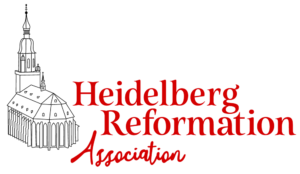Yesterday Trevin Wax crystalized the case for preserving the neo-evangelical coalition, which emerged after World War II and in so doing, for Reformed confessionalists, he has also made the case against the neo-evangelical coalition. What is that coalition and what are its attractions . . . Continue reading →
Recovering the Reformed Confession
Heidelcast 193: Taking Calls On Christian Platonism And Covid-19 Restrictions
We are taking a break from the series, What Must A Christian Believe to take some calls and answer some questions. The first question comes from Deborah in Chicago who asks about the trend among evangelicals to talk about “Christian Platonism.” What is . . . Continue reading →
The Nature And Value Of Christian Liberty
Do you ever feel like other people are better Christians than you are? Maybe they read their Bibles more, give more money to the church, pray more for others, are involved in church ministry, do more good deeds, or never seem to . . . Continue reading →
A Pastor’s Plea: Let The Church Help You Think Through Difficult Issues
Introduction Americans are an independent lot. In the secular sphere (e.g., politics and economics) that can be an admirable quality which contributes mightily to freedom and prosperity. In the sacred sphere (e.g., in the life of the church, in our spiritual and . . . Continue reading →
On Leaving The Mainline: Some Friendly Advice To The Alliance Of Reformed Churches
Kathryn Post, writing for the Religion News Service (HT: Christianity Today), writes, “On New Year’s Day, 43 congregations of the Reformed Church in America (RCA) split from the national denomination, one of the oldest Protestant bodies in the United States, in part over theological differences regarding same-sex marriage and the ordination of LGBT clergy.” This move, she says, “follows the RCA General Synod’s October decision to adopt measures for ‘grace-filled separation’ with departing churches and to appoint a team to develop a restructuring plan for those that remain.” These 43 congregations (so far) have formed The Alliance of Reformed Churches. Continue reading →
Psalms, Sabbath, And Iconoclasm Are Not Quirks But Acts Of Confession
Within wider Christianity, Presbyterians are often labeled—and sometimes dismissed—as traditionalists. This label may seem to explain some aspects of Presbyterian piety, but not all. When Christians outside of Reformed circles learn about the Presbyterian passion for singing Psalms, keeping Sabbath, and rejecting . . . Continue reading →
With Presbycast And D. G. Hart: Re-Framing Machen’s Warrior Children
Last night was 2/3 of a full-Rogan (who hosts really long podcasts) with Darryl Hart, Wresbyterian, Brad (“Chortles Weakly”) Isbell, and Dr Clark as they discussed and dissected the recent re-publication, on the website of the National Partnership (the formerly secret organization . . . Continue reading →
Mathison: When Reformed Theology Is Adapted To Enlightenment Presuppositions It Withers And Dies
In other words, if we want to know why there are so many Reformed theological giants in the sixteenth and seventeenth centuries and comparatively few afterwards, a large part of it has to do with the later theologians adopting various forms of . . . Continue reading →
The Synod Of Dort Required Ministers To Subscribe The Catechism, The Confession, And The Acts Of Synod (Including The Canons) As A Standard Of Orthodoxy
The practice of subscribing the confessions of the church is not new. Continue reading →
With Presbycast On Revival, Revivalism, And What Does “Evangelical” Mean?
The Presbycast (Brad “Chortles Weakly” Isbell and Wresbyterian) put up the bat signal yesterday so I filled in for the redoutable Chris Drew. There was some confusion over the number of episodes in which I have appeared. The correct number is 25. . . . Continue reading →
Secular When It Should Be Sacred
A significant part of the process of recovering and applying classical Reformed theology to our contemporary situation (sometimes called ressourcement, a French word which refers to getting back to original sources) is recovering the distinctions that we lost in the 19th and . . . Continue reading →
The HRA Is One Year Old: How You Can Help Us Help You
Our mission has not changed. We remain committed to recovering the Reformed confession, i.e., it theology, piety, and practice. If anything, this past year has only increased our sense of the need and importance of this mission but we need your help. Continue reading →
Teraz po polsku (Now In Polish) The Westminster Confession and Christianity & Liberalism
The Reformed theology, piety, and practice is a global phenomenon. Continue reading →
What it Means to be Confessional
For quite some time now, various labels have been used to describe those who hold to the orthodox Christian faith, such as orthodox, conservative, traditional, or even biblical. While these can be helpful terms, I believe that the term confessional is a . . . Continue reading →
Abraham, Moses, and Baptism
I am in the midst of an interesting discussion of baptism with a friend. This friend has Baptist convictions, yet he understands Reformed theology better than many of the Reformed. He is quite sympathetic to historic and confessional Reformed theology. For example, . . . Continue reading →
The Problem of the Minimalist Definition of “Reformed”
An essay on being Reformed was brought to my attention (the essay is no longer published on the original source) many years ago now. It is an interesting piece because it represents a widely held position among Evangelicals and the broader Reformed . . . Continue reading →
Fencing The Table Or The Scandal Of The Church
Perhaps nothing so scandalizes the contemporary (i.e., modern) church as the attempt by the visible church to obey the teaching of Jesus and the teaching of the Apostles concerning the Lord’s Table. I say this for three reasons: 1) recently I have . . . Continue reading →
Is Reformed Theology “Isolationist?”
One of the many criticisms John Frame makes of Recovering the Reformed Confession is that it advocates a closed, isolationist, elitist view of the Reformed faith in order to exclude others unnecessarily and wrongly.1 Jerry Owen, a commentator on Frame’s review, asks, . . . Continue reading →
“Bound To The Past” And To A Living Confession
In reaction to Rick Phillips’ critique of a response by a Federal Visionist to his (then) presbytery, one of the proponents of the Federal Vision made the following argument: Surely, we all know there’s a difference between how we use terms in . . . Continue reading →
If We Don’t Do X, The Young People Will Leave
It is trite, but just in case you have not heard the story: During the Vietnam War, a Marine Corps colonel is reported to have said, “We had to destroy the village in order to save it.”1 An analogy to this approach . . . Continue reading →















